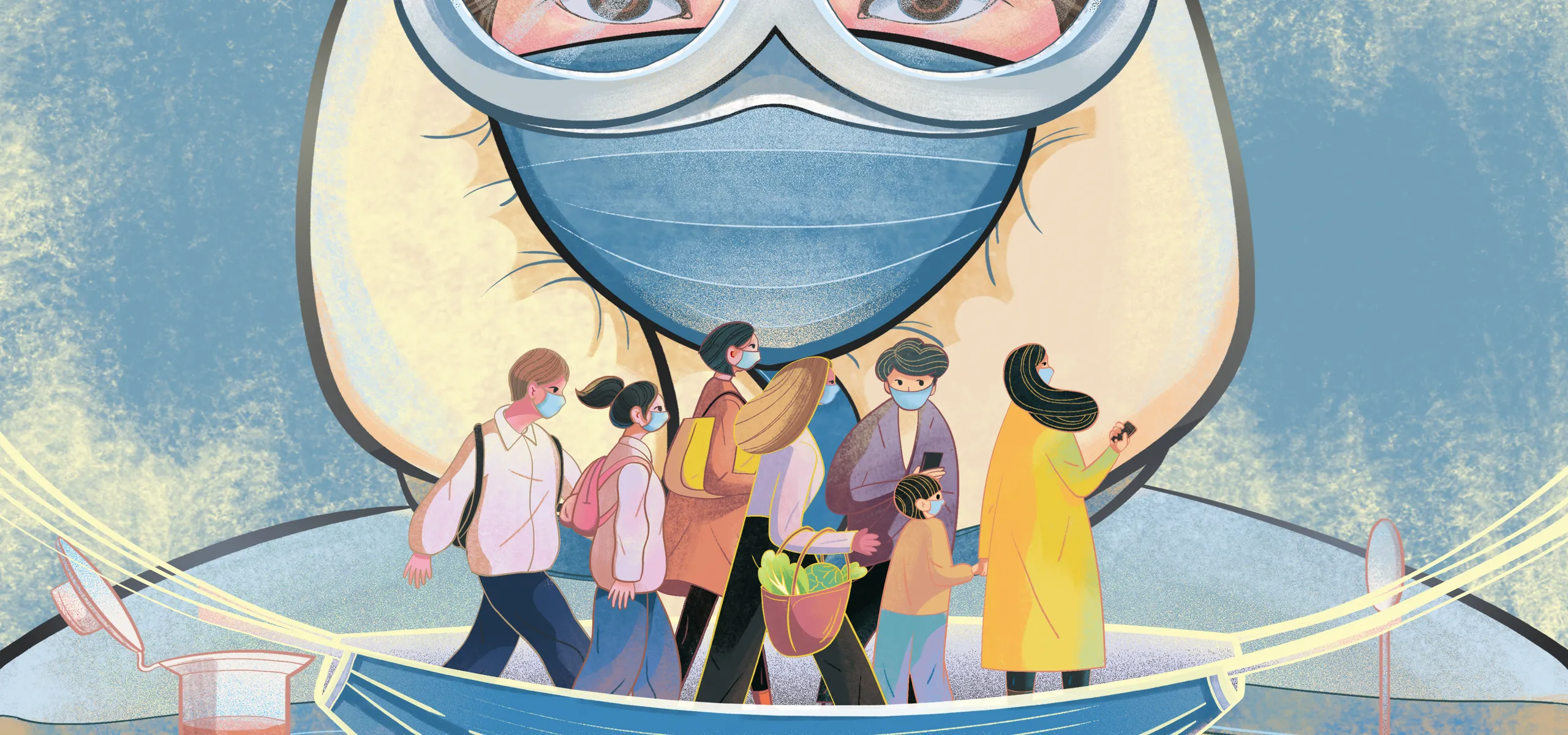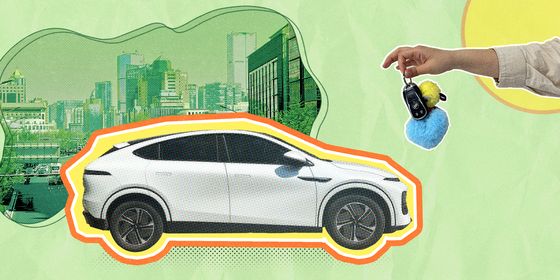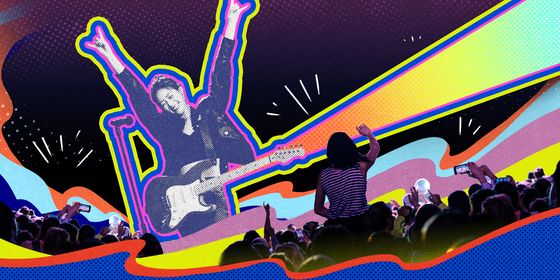The Essential Pandemic Language Guide
Nearly two-and-a-half years since Covid-19 was detected at a seafood market in Wuhan, the pandemic has touched nearly every aspect of life worldwide—changing people’s attitudes toward food safety, public health, travel, and socializing, as well as popularizing phrases in English like “social distancing” and “flattening the curve.”
In China, which continues to maintain a “zero-Covid” policy, stringent lockdown measures and widespread testing of affected neighborhoods have also made people utterly at home with terms like 清零 (qīnglíng, zero-Covid); 消杀 (xiāoshā, disinfection); 大白 (dàbái, “big white”), a nickname for community workers outfitted in white-colored protective suits; and 核酸 (hésuān), short for 核酸检测 (hésuān jiǎncè, nucleic acid test). When Beijing saw a cluster outbreak in the summer of 2020, it was joked that “您核酸了吗 (Nín hésuān le ma, Have you taken a nucleic acid test)?” had replaced “吃了吗 (Chī le ma, Have you eaten)?” as a standard greeting among residents of the capital.
At the time of writing, Shanghai is nearing the end of the first month of a battle against an outbreak of the highly contagious omicron variant, which has led to China’s strictest lockdown measures to date. With an estimated 400 million people experiencing restrictions due to pandemic control in Shanghai and other parts of China, the pandemic has reshaped how they speak, act, and even eat.
Stockpiling supplies
In the early days of Shanghai’s city-wide lockdown, the shutdown of businesses and delivery channels inside and outside the city made food and other basic necessities into scarce commodities for those who did not stock up beforehand. Across the city, tech-savvy residents got used to setting their alarm at odd hours—say, 5:45 a.m.—to get ready to “snatch” fresh produce from online delivery platforms before they run out.
It is a test of both swiftness and perseverance. Cycling through up to 12 apps on their phone, the Shanghai resident might repeatedly smash the “checkout” button, only to have supplies run out or the app crash due to too many people attempting to order simultaneously. Those who missed out might exclaim:
Vegetables are even harder to buy than a ticket to a Jay Chou concert.
抢菜比抢周杰伦演唱会门票还需要用力。
As supply struggles to meet demand, vegetables have become the new luxuries in China’s biggest city, previously known for being the country’s hub of finance and high-end consumption. When a single cabbage set one back by 80 yuan in the panicked early days of the lockdown, Shanghai residents developed their own spin on the ol’ chi le ma, asking one another:
Have you snatched up your green luxuries?
你的绿色奢侈品抢到了吗?
Lockdown living
Life in isolation and social distancing can take a toll on one’s mental health. In Shanghai, as in Wuhan in early 2020, locked-down residents turned to activities like building an obstacle course in the living room, watching viral workout videos, or singing with their neighbors on the balcony to pass the time.
But there is only so much exercise one can do. The rest of the time, there might be nothing to stave off boredom except gaze out the window and record one’s observations, as one online meme demonstrates:
The leaves outside my window trembled 1,682 times. Birds chirped 168 times. A package of sunflower seeds contains 1,846 pieces.
窗外树叶晃动了1682次,小鸟叫了168声,一袋瓜子一共1846粒。
Other locked-down netizens have turned their ponderings to a more intellectual direction: by producing “pandemic literature (疫情文学 yìqíng wénxué),” a meme involving making parodies of lines of famous literature in the context of Covid-19, such as Albert Camus’s The Stranger or Lu Xun’s “Autumn Night”:
My green health code turned red today. Or maybe it was yesterday, I don’t know.
今天,绿码红了,又或者是昨天,我也不清楚。
There are two buildings in my community. One is locked down. The other is also locked down.
小区里有两栋楼,一栋封了,另一栋也封了。
For those stranded at home, perhaps the color of their 健康码 (jiànkāngmǎ, health code), a QR code that changes color and restricts a person’s movements if they’ve been in close contact with Covid cases or traveled to an affected area, does not matter that much after all, as they can’t go out anyway. Those getting itchy feet to tour exhibitions, museums, and famous sights can take the virtual tours many museums and tourist sites in China have offered since the pandemic began:
Calling for online travel buddies to join me for a virtual tour of the Yellow Crane Tower in Wuhan!
在线诚招小伙伴一起云游武汉黄鹤楼!
Learning under lockdown
Some of the people most affected by the pandemic are students of all ages, who have had to stay either at home or on their campuses for most of the last two years. For college students especially, the bustle of campus life might seem like a distant memory—if they got to experience it at all, unlike entering students after 2020:
Due to the pandemic, I’ve been at home for over a hundred days in total. My college education has become a distance learning course.
因为疫情,在家已经呆了100多天,活生生把全日制大学读成了函授。
They’ve gotten used to dealing with technical glitches during online lessons and seeing their teachers’ heads talking on a screen:
Can everyone hear me? Am I frozen? Did you all take out the green book? Write in the comment section if you did.
能听清楚我声音吗?卡吗?绿书拿出来没有? 拿出来在评论区讲一下.
Many students have had to postpone plans to study abroad or take standardized exams, like the IELTS:
My examination was postponed again due to the outbreak. My stress has been successfully extended to October.
考试因为疫情又延期了,我的压力成功推到了10月份。
Office workers, too, have had to periodically work from home when their cities see a surge in infection. They’ve become familiar with children and pets interrupting online meetings, as well as the embarrassment of having made an excellent point…only to hear their colleagues frantically shouting:
Mr. Zhang, your microphone is muted!
小张,你的麦克风没打开!
D-Day
The most highly anticipated event for any locked-down community is, of course, 解封 (jiěfēng, lifting of the lockdown). When it happens, it’s time to celebrate the exciting news on social media:
I’m lucky to have made it as a finalist in the current outbreak.
很幸运自己在本轮疫情终于进入决赛圈.
My travel code finally lost its asterisk.
行程码喜提摘星。
An asterisk-free travel code in one’s mobile phone, meaning that one has not been to a medium or high-risk area in the past fourteen days, is uplifting, but it is not immune to change. Community officials will keep up with the strict contact-tracing protocols, checking in with every household by phone or WeChat:
Please check whether you crossed paths with these confirmed cases. If so, please report to the community.
请大家自查与病例有没有时空交集,如有请上报社区。
To keep up with contact tracing requirements, public buildings and businesses in most cities require all visitors to scan a QR code so the system can keep track of who has been where:
Please wear your mask and scan the health code. Thank you for your cooperation.
请您佩戴好口罩,扫健康码,谢谢配合。
Nucleic acid tests have become routine especially for those who travel, as trains and flights require passengers to present a recent negative test result before boarding, and communities may require it for those who come back from travel:
The nasal swab today instantly turned my face into a mask of pain.
今天捅鼻子直接给我捅出痛苦面具来了。
Which type of swab will we have tomorrow? Nasal or throat?
明天做什么核酸啊?是鼻拭子还是咽拭子啊?
Before taking off, travelers need to check carefully that they won’t end up in mandatory quarantine, as policies could vary city to city, or even town to town.
If we travel from a low-risk area of Shanghai to Shenzhen for two days by high-speed train, do we need to quarantine upon return? Do we need to do nucleic acid tests?
想问从上海低风险地区坐高铁去深圳两天,回来需要隔离吗?需要做核酸吗?
Will we be taken to centralized quarantine or allowed to quarantine at home?
在车站直接拉走集中隔离还是自己回家隔离啊?
But those currently stuck in a strict lockdown might feel they won’t even have to travel far to enjoy their newfound freedom:
The first thing I will do when the lockdown is over is to eat all the delicious food in Shanghai!
解封之后第一件事就是吃遍上海所有美食!
The Essential Pandemic Language Guide is a story from our issue, “Lessons For Life.” To read the entire issue, become a subscriber and receive the full magazine.












